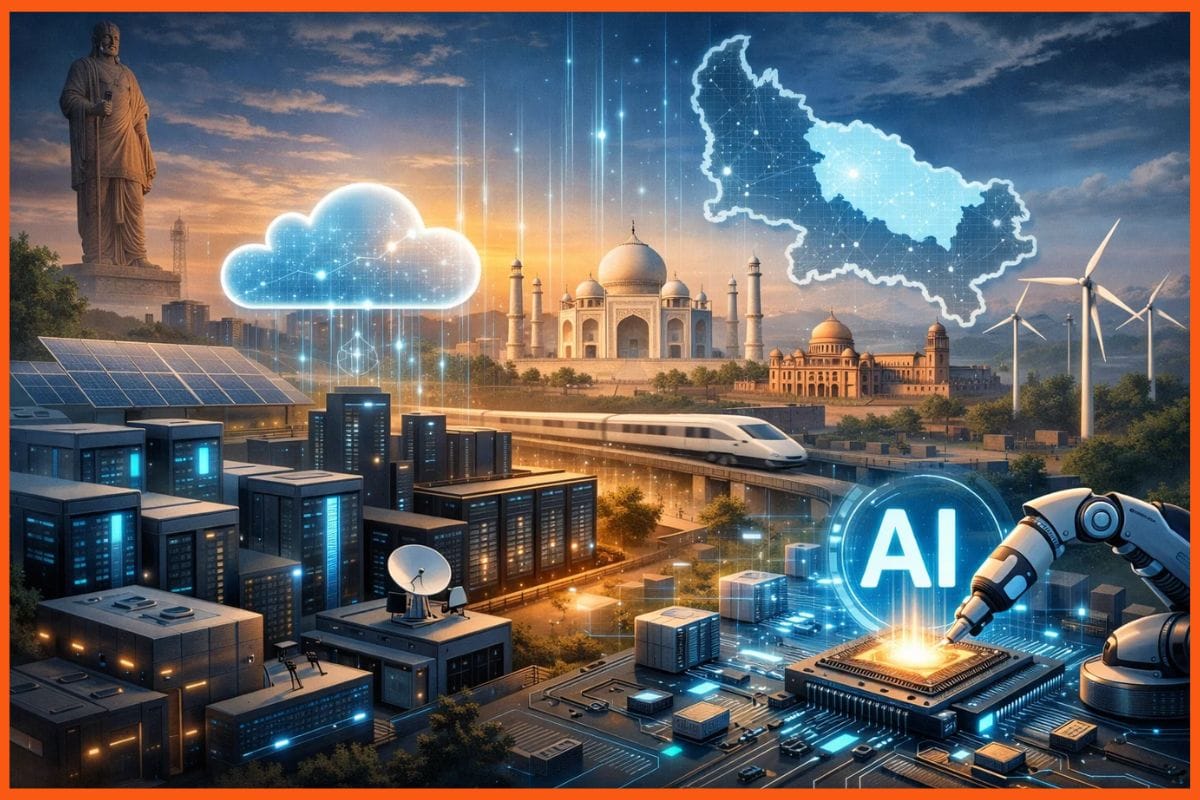How Machine Learning Is Revolutionizing the Healthcare Industry?
🔍Insights
What if, you are told that in near future surgeries will be performed by Machines. Yes, machine learning has advanced rapidly that in near future it will be possible to perform medical surgeries with minimum or no interventions by a Physician. Machine learning is widely used in healthcare industry in 2022.
When we hear AI or machine learning the first thing that comes in our mind is Robots but machine learning is much more complicated than that. Machine learning has advanced in every possible field and revolutionized many industries such as healthcare, retail and banking. In this article, we will talk about how machine learning is bringing a change in the healthcare industry. So let's get right into the business.
What Is Machine Learning?
Machine Learning in Healthcare
How Machine Learning Is Used in Healthcare?
Pros of Machine Learning in Healthcare
Cons of Machine Learning in Healthcare
In-Med Prognostics Launches Neuroshield
Future of Machine Learning in Healthcare
What Is Machine Learning?
Machine learning is an application of AI that provides the system with the ability to learn and improve from experiences without being programmed. The primary focus is to allow the computers to learn automatically without any human intervention or assistance. The process of learning begins with observations of data and finding patterns in data and making better decisions in the future. Machine learning has started making it place in India.
Machine Learning in Healthcare
The Healthcare industry has seen many advancements, but machine learning is one such advancement that has enhanced the performance of healthcare businesses. Machine learning has advanced a lot but the best machine learning tool in healthcare industry is a doctors brain. Many physicians worry that machine learning will dominate the healthcare industry.
Machine learning should be focused on how it can be used to augment patient care and employed as a tool by physicians to improve clinical use. Machine learning can never replace physicians because even if it reached supremacy, the patient always needs the human touch and caring of a physician.
How Machine Learning Is Used in Healthcare?
Machine Learning is taking turns and has entered into various industries and it looks like its not going to stop at any moment. It has also started showing its caliber in the Healthcare industry. Some of the ways it is used there are:
Identifying Disease and Diagnosis
Scientists are already working on machine learning models that predict disease or early diagnosis of disease and illness. A UK based technology startup feebris is working on artificial intelligence algorithms for precise detection of complex respiratory conditions. MIT’s Computer Science and Artificial Intelligence Lab has developed a new deep learning-based prediction model that can predict the development of breast cancer in advance up to five years.
Robotic Surgery
The application of robotics in healthcare is rapidly growing since it began in 1980. Robots performing surgery still might sound untrustworthy to many but in near future, it will be commonly used in surgeries. Robotics is also used in hospitals to monitor the patients and alert the nurses if there is human interaction required.
The robotic assistant can locate the blood vessel and draw the blood with less pain and anxiety for the patient. Robots also prepare and dispense medications and vaccines in pharmacological labs. In large facilities robotics are used as a cart to carry medical supplies. Speaking about robots replacing humans is not happening anywhere soon, robotics can only assist the doctors but can never replace them.
Medical Imaging Diagnosis
Medical imaging diagnosis is a process or technique in which visual representation of tissue or internal parts of organs are created to monitor health, diagnose and treat diseases. It also helps in creating database of anatomy and physiology. Surgical interventions can be avoided if medical imaging technology like ultrasound and MRI are used.

Machine learning algorithms can rapidly process massive amount of medical images and they can be precisely trained to identify the details in CT scans and MRI's. A deep learning team from US, France and Germany have developed algorithm that can diagnose skin cancer more accurately than a dermatologist.
Pros of Machine Learning in Healthcare
More and more healthcare companies are choosing Machine Learningbecause pf its benefits. Some of the benefits are:
Patterns Are Easily Identified
A great ability of machine learning is that it can identify patterns and data precisely which might not be possible by a human. It can process massive amount of patterns and data rapidly with ease. With new innovation all of these are possible.
Smart Health Records
Maintaining health records is an exhaustive process so machine learning is used to ease the process and reduce the time and efforts required for maintaining health records. Machine learning in today's world is working on cutting edge technologies for maintaining smart data records.
Minimum Human Intervention
Machine learning adapts overtime by learning from patterns and data. The primary benefit of machine learning is that it requires minimum intervention by humans and it can perform surgeries with ease.
Cons of Machine Learning in Healthcare
There is also a hesitation as well because with benefits Machine Learning has some cons as well. Some of them are:
Data Acquisition
Machine learning adapts through patterns and data sets and it requires a massive data sets and patterns to train its algorithms. The data should be precise and of good quality.
Take Time to Learn and Adapt
Machine learning requires enough time for its algorithms to learn and adapt to the patterns and data so that it can deliver accurate results. It requires additional computer power to function.
High Error-Susceptibility
Machine learning is highly susceptible to errors, it requires massive amount of data and if it is not provided with sufficient amount of data it may not function properly. Any inaccurate data fed to the machine may end up in undesirable result.
In-Med Prognostics Launches Neuroshield

One of the prime example of Machine Learning in the health industry is how In-Med Prognostics, a health tech company developing AI based brain health diagnostic and prognostic tools, launched NEUROShield, a cloud-based Clinical Decision Support Tool for neurological disorders. The NeuroShield technology uses pattern recognition and deep learning for the development of clinical biomarkers for early prognosis and differential diagnosis.
NEUROShield, powered by state-of-the-art AI, utilizes 3D based MRI images to their full potential by extracting data and providing volumetric analysis for the brain and its various structures. Use of cutting edge, AI technology enables them to perform analysis, on both Indian and Caucasian brains, thus unlocking a global scalability potential for their platform. AI is increasing innovation in the enterprises.
Future of Machine Learning in Healthcare
The development in machine learning will be able to automatically detect most of the diseases in its early stage. It will also increase the efficiency and accuracy in disease detection to reduce the burden on doctors. AI and Machine Learning will revolutionize the future healthcare industry.
Machine learning has advanced rapidly in every field such as navigation, business, retail, and banking but progressing in the healthcare industry is difficult because of the limited availability of data and lack of highly skilled scientists. Machine learning still requires improvements and several factors need to be improved.
Conclusion
Machine learning in the healthcare domain has become more popular and widely used in the healthcare industry. ML is helping patients and clinicians in many different ways by making their work easy. Some of the most common applications of machine learning are automating medical billing, clinical decision support, and the development of clinical care guidelines. There are a lot of applications of machine learning that are under research and development. In the future, we'll be seeing a lot of applications of ML in the healthcare sector getting implemented and making the lives of humans easy.
FAQs
What is ML healthcare?
Scientists and researchers are using machine learning (ML) to churn out a number of smart solutions that can ultimately help in diagnosing and treating an illness.
How is machine learning used in medical diagnosis?
Studying physiological data, environmental influences, and genetic factors allow practitioners to diagnose diseases early and more effectively. Machine learning allows us to build models that associate a broad range of variables with a disease.
What is machine learning in medicine?
Machine learning (a subset of artificial intelligence) plays a key role in many health-related realms, including the development of new medical procedures, the handling of patient data and records, and the treatment of chronic diseases.
What are the benefits of AI in healthcare?
Integrating AI into the healthcare ecosystem allows for a multitude of benefits, including automating tasks and analyzing big patient data sets to deliver better healthcare faster, and at a lower cost. According to Insider Intelligence, 30% of healthcare costs are associated with administrative tasks.
How is Machine Learning used in hospitals?
Machine Learning analyzes data throughout a healthcare system to mine, automate and predict processes. It has been used to predict ICU transfers, improve clinical workflows and even pinpoint a patient's risk of hospital-acquired infections.
Must have tools for startups - Recommended by StartupTalky
- Convert Visitors into Leads- SeizeLead
- Website Builder SquareSpace
- Run your business Smoothly Systeme.io
- Stock Images Shutterstock





